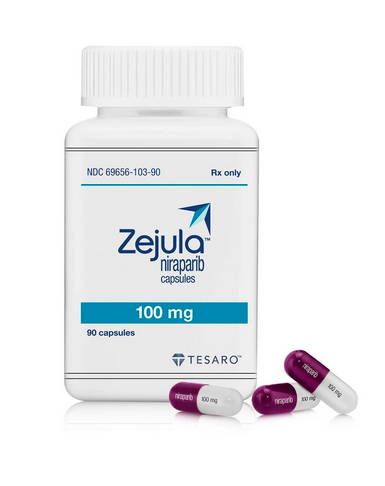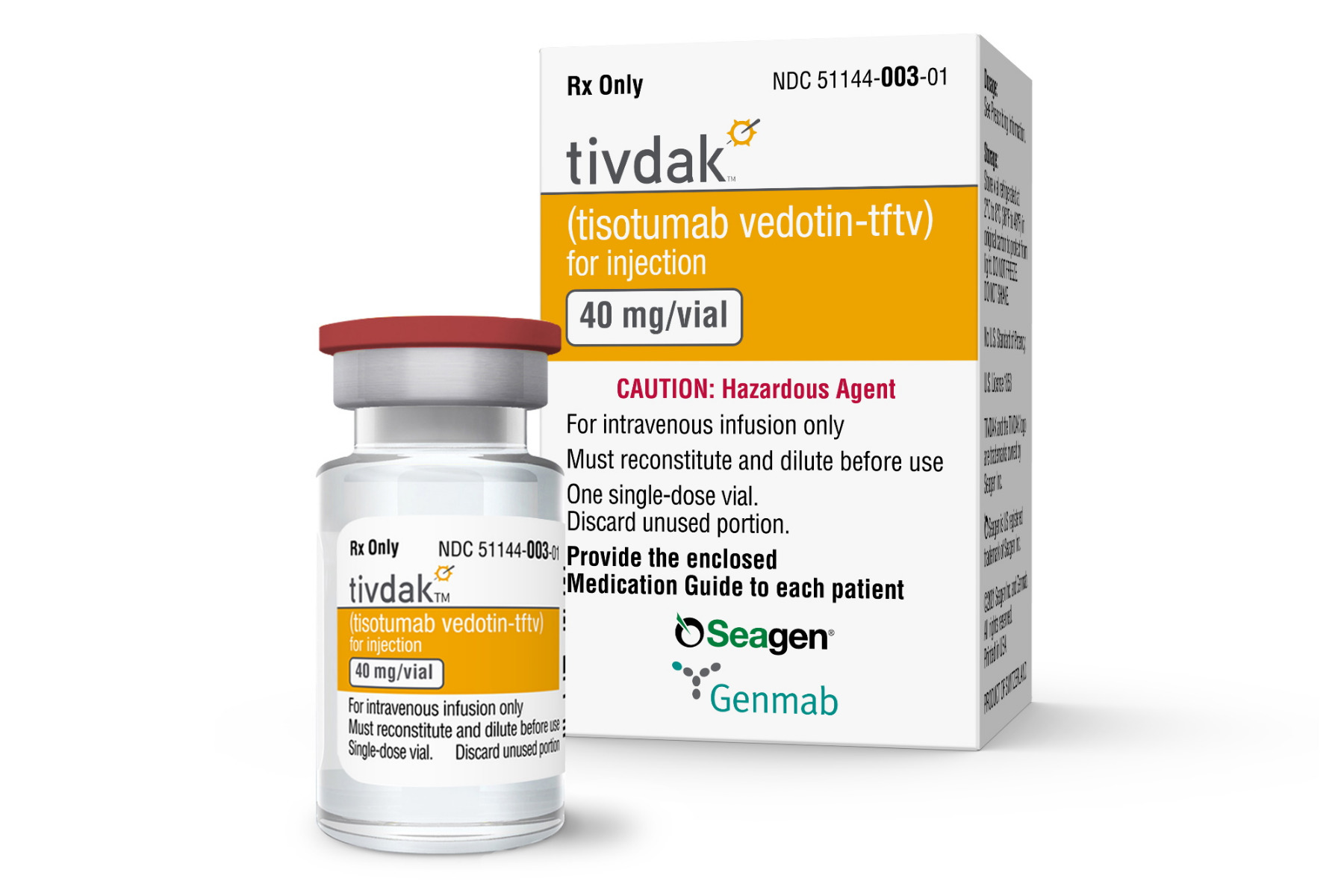Zejula (niraparib) vs Tivdak (tisotumab vedotin-tftv)
Zejula (niraparib) vs Tivdak (tisotumab vedotin-tftv)
Zejula (niraparib) is a PARP inhibitor used primarily as a maintenance treatment for adults with recurrent epithelial ovarian, fallopian tube, or primary peritoneal cancer who are in a complete or partial response to platinum-based chemotherapy. Tivdak (tisotumab vedotin-tftv) is an antibody-drug conjugate specifically indicated for the treatment of adult patients with recurrent or metastatic cervical cancer with disease progression on or after chemotherapy. When deciding between these two medications, it is important to consider the type of cancer being treated, as Zejula is tailored for certain ovarian cancer cases, while Tivdak is used for cervical cancer, and the decision should be made in consultation with an oncologist who can evaluate the specific medical history and treatment goals of the patient.
Difference between Zejula and Tivdak
| Metric | Zejula (niraparib) | Tivdak (tisotumab vedotin-tftv) |
|---|---|---|
| Generic name | niraparib | tisotumab vedotin-tftv |
| Indications | Ovarian, fallopian tube, or primary peritoneal cancer | Recurrent or metastatic cervical cancer |
| Mechanism of action | Poly (ADP-ribose) polymerase (PARP) inhibitor | Antibody-drug conjugate targeting tissue factor |
| Brand names | Zejula | Tivdak |
| Administrative route | Oral | Intravenous |
| Side effects | Nausea, thrombocytopenia, fatigue, anemia, constipation, vomiting, abdominal pain, insomnia, headache, decreased appetite | Fatigue, nausea, alopecia, constipation, decreased appetite, rash, neuropathy, diarrhea, dry eye, hemorrhage |
| Contraindications | None specifically noted; caution with blood disorders or using anticoagulants | None specifically noted; caution with bleeding disorders or when using anticoagulants |
| Drug class | Poly (ADP-ribose) polymerase inhibitor | Antibody-drug conjugate |
| Manufacturer | GlaxoSmithKline (GSK) | Seagen Inc. and Genmab |
Efficacy
Efficacy of Zejula (niraparib) in Gynecological Cancer
Zejula (niraparib) is a poly (ADP-ribose) polymerase (PARP) inhibitor indicated for the maintenance treatment of adult patients with recurrent epithelial ovarian, fallopian tube, or primary peritoneal cancer who are in a complete or partial response to platinum-based chemotherapy. The efficacy of Zejula in gynecological cancers, particularly ovarian cancer, has been demonstrated in several clinical trials. One pivotal phase 3 trial, NOVA, showed that niraparib significantly improved progression-free survival (PFS) compared to placebo in patients with recurrent ovarian cancer who had responded to platinum-based chemotherapy, regardless of BRCA mutation status. This benefit was observed across a spectrum of patient subgroups, making it a valuable option for a wide range of patients with this disease.
Efficacy of Tivdak (tisotumab vedotin-tftv) in Gynecological Cancer
Tivdak (tisotumab vedotin-tftv) is a first-in-class antibody-drug conjugate directed against tissue factor, which is expressed on many solid tumors, including gynecological cancers. It is approved for the treatment of adult patients with recurrent or metastatic cervical cancer with disease progression on or after chemotherapy. The approval of Tivdak was based on the results of the innovaTV 204 phase 2 clinical trial, which demonstrated a meaningful objective response rate (ORR) in patients with previously treated recurrent or metastatic cervical cancer. The study showed that Tivdak induced responses in a significant proportion of patients, with some achieving complete responses, indicating its potential as an effective treatment option for this patient population.
Both Zejula and Tivdak represent advances in the treatment of gynecological cancers, offering new hope for patients with these challenging conditions. While Zejula provides a maintenance therapy option to delay disease progression in ovarian cancer, Tivdak offers a targeted treatment for cervical cancer patients who have limited options after first-line therapy. The efficacy of these drugs in improving patient outcomes underscores the importance of continued research and development in the field of gynecological oncology.
It is important for patients and healthcare providers to discuss the potential benefits and risks of these treatments. The choice of therapy should be individualized based on the patient's specific disease characteristics, prior treatment history, and overall health status. As with any medication, the efficacy of Zejula and Tivdak should be weighed against their safety profiles, and treatment decisions should be made collaboratively by the patient and their healthcare team.
Regulatory Agency Approvals
Zejula
-
European Medical Agency (EMA), European Union

-
Food and Drug Administration (FDA), USA

-
Health Canada

-
Therapeutic Goods Administration (TGA), Australia

Tivdak
-
Food and Drug Administration (FDA), USA

Access Zejula or Tivdak today
If Zejula or Tivdak are not approved or available in your country (e.g. due to supply issues), you can access them via Everyone.org.
How it works

Make an enquiry
Choose the medicine you want to buy, answer a couple of questions, and upload your prescription to speed things up. We’ll get back to you within 24 hours.


Make an enquiry
Choose the medicine you want to buy, answer a couple of questions, and upload your prescription to speed things up. We’ll get back to you within 24 hours.


Breeze through the paperwork
We'll guide you through the required documents for importing unapproved medicine, ensuring you have all the necessary information.


Get a personalized quote
We’ll prepare a quote for you, including medicine costs and any shipping, administrative, or import fees that may apply.


Receive your medicine
Accept the quote and we’ll handle the rest - sourcing and safely delivering your medicine.

Some text on this page has been automatically generated. Speak to your physician before you start a new treatment or medication.
Let's talk
If you have any questions, call us or send us a message through WhatsApp or email:
Contact us




